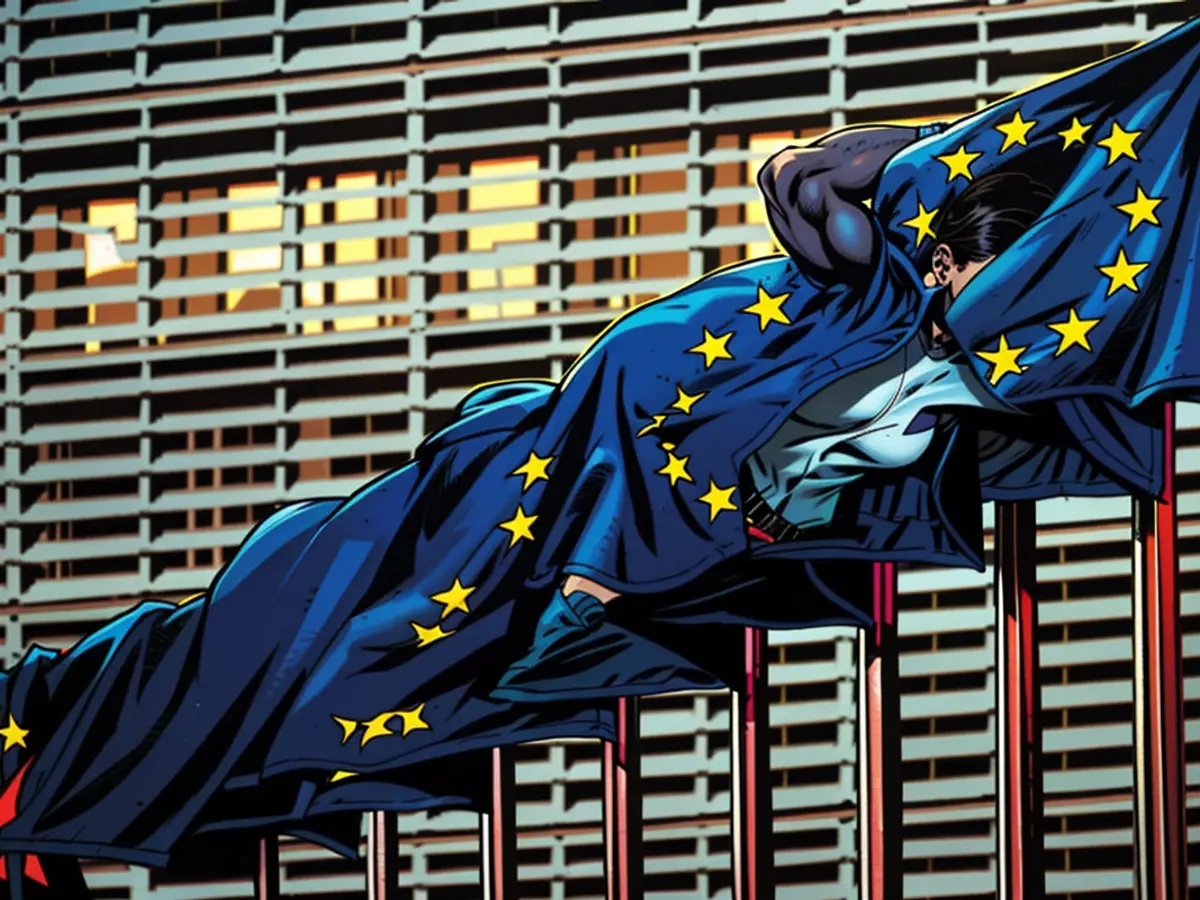EU commences negotiations for membership with Ukraine and Moldova
The European Union is currently in negotiations with Ukraine and Moldova regarding potential membership, a highly anticipated development. However, the duration and outcome of these negotiations remain uncertain. The EU is also hoping for reform within the European Community, led by Germany.
The accession talks between the EU and Ukraine and Moldova officially commenced, with representatives from the 27 EU member states and envoys from the two countries gathering in Luxembourg for the initial session. During this meeting, the EU outlined the parameters for the negotiations, with Belgian Foreign Minister Hadja Lahbib expressing excitement, stating, "This is a significant moment for us all and a crucial step in our relationship." The entry process is seen as a strategic investment in peace, security, stability, and prosperity.
The commencement of the negotiations was met with celebration in Ukraine, with President Volodymyr Zelenskyy remarking, "Today is a day we've all been working towards - the entire Ukrainian team." The country now has a definite promise of becoming a full-fledged EU member.
Zelenskyy went on to say, "Many have said it's just a dream," but despite "tough requirements" due to the ongoing Russian conflict in Ukraine, both Ukraine and Moldova have already made significant reform efforts. German European State Secretary Anna Lührmann highlighted these advancements, stating, "Both countries have made substantial progress in areas like the rule of law, anti-corruption, and press freedom."
Ukraine and Moldova applied for EU membership following the start of the Russian conflict against Ukraine in February 2022. However, it may take years, if not decades, for these Eastern European countries to meet all the criteria for membership. In Ukraine's case, achieving peace with Russia is a prerequisite. If peace is not attained, Ukraine may seek military aid from the EU, potentially making the EU a party to war. No guarantees of admission have been given.
European Commission President Ursula von der Leyen applauded both countries, stating they have shown "unwavering determination" towards EU membership. However, von der Leyen was quick to add, "There are no shortcuts" on the path to EU membership, even in the context of the Russian conflict.
The first contentious talks are expected to begin over the next twelve months, preceded by a screening process conducted by the EU Commission to assess how much the national laws of the candidate countries differ from EU law.
German State Secretary Lührmann emphasized that in light of Ukraine's potential accession, the EU must also begin to "prepare for this expansion." Reforms must be implemented to prevent "more destructive blockades." Recently, Hungary's Russia-friendly Prime Minister Viktor Orban has been a significant obstacle in the negotiations, delaying progress.
Since Hungary will take over the EU Council presidency from July, the accession talks are not expected to progress immediately. Regarding Ukraine, Hungary's European Minister Janos Boka stated that the country is "still far from meeting the accession criteria." For each step in the process, unanimity among the 27 EU members is necessary, allowing Hungary the potential to use its veto frequently.
Relations with Ukraine will also be discussed at the EU summit in Brussels starting Thursday, where talks about "security guarantees" for Ukraine will take place, which Ukraine has already agreed to with the USA in a similar capacity. There are also already bilateral agreements between Germany and Ukraine.
Read also:
- Following the EU's initiation of membership negotiations with Ukraine and Moldova, Ursula von der Leyen, the President of the European Commission, recognized the unwavering determination shown by both countries towards EU integration, despite the challenging requirements resulting from the Ukraine conflict.
- In the midst of ongoing negotiations for EU membership, Volodymyr Selensky, the President of Ukraine, expressed gratitude towards the EU for considering their application, stressing that Ukraine, together with Moldova, has made significant reform efforts to meet the Union's criteria, despite the continuing conflict with Russia.
- As the Republic of Moldova and Ukraine pursue their EU membership ambitions, the European Union aims to extend its influence and strengthen security and stability in the region, particularly in the face of ongoing conflicts and tensions with neighboring countries, such as Russia.








